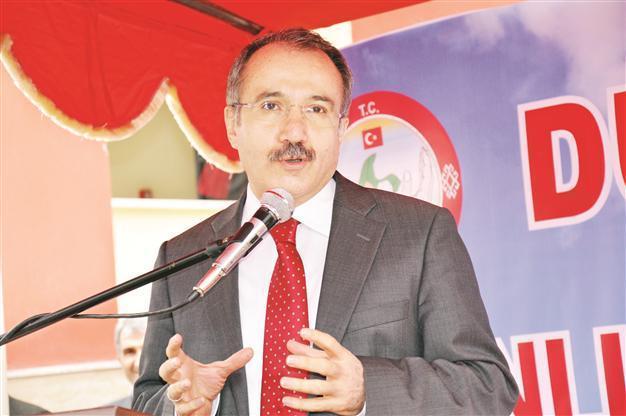Books are to read, says the education minister
ANKARA

Education Minister Ömer Dinçer voices his objection to acts of censorship, but argues that the heavy criticism leveled
at the institutions working under his ministry was not fair, blaming the publishing house in a specific case. AA photo
At a time when institutions working under his ministry have drawn harsh reaction for their attempts to ban books, Education Minister Ömer Dinçer voiced his objection to acts of censorship yesterday, but argued that the heavy criticism leveled at those institutions was not fair.
“Nobody has the right to censor Yunus Emre,” Dinçer said, speaking at a meeting of his ministry.
Back in December, it was revealed that certain lines from poems by the 13th century Turkish poet and Sufi mystic, Yunus Emre were omitted by a publishing house with the ministry’s Board of Education and Discipline (TTK) approving the book so it could be added to schools’ reading lists as a censored text rather than its original version. The omitted lines were about houris, the heavenly maidens in Islam’s heaven.
“Maybe the point which should be criticized here is the fact that the publishing house that published the book didn’t show the required sensitivity for protecting the integrity of the poem. Relying on this, claiming that the TTK has been working as a censorship institution is openly unfair,” Dinçer said.
“Likewise, countless number of books such as ‘My Sweet Orange Tree’ and ‘Of Mice and Men’ are present for being read, but not for being investigated,” he said.
Move to censor ‘Of Mice and Men’Steinbeck’s famous novel “Of Mice and Men” and “My Sweet Orange Tree” by Brazilian writer Jose Mauro de Vasconcelos, which are on a governmental list of books every child should read, are now part of a censorship debate in Turkey.
The İzmir Education Directorate’s Books Commission, which was set up to review curricula and school course books, is seeking to ban certain parts of “Of Mice and Men,” citing “vulgar content” as justification for its proposed censorship. The commission decided the book was “unsuitable for educational use.”
In a similar case, Istanbul’s Bahçelievler Provincial Education Directorate launched an investigation into a Turkish-language arts teacher who made her students read “My Sweet Orange Tree” after a parental complaint.
Dinçer said they’ve started a new process regarding the assessment of school books. Accordingly, a book by a publishing house and a book by an institution of the ministry would be assesses through the same criteria, he said.
